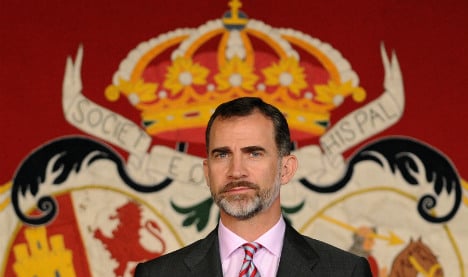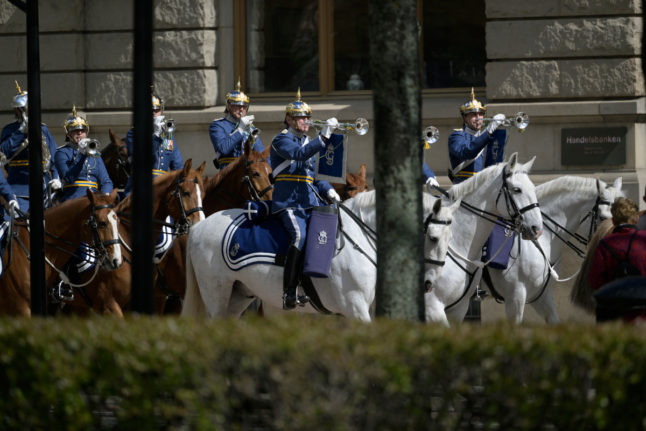Felipe VI has strengthened the standing of Spain's monarchy in his first year as king, surprising the country by squaring up to scandal — but its future remains uncertain as a fresh political generation comes of age.
With new protest parties carving up the vote ahead of a general election due by the end of this year, royal-watchers say the 47-year old king is re-tuning the role of the monarchy.
He took the country by surprise last week when he faced his family's biggest scandal head-on, stripping the title Duchess of Palma from his sister Cristina, who has been called to stand trial for alleged tax evasion.
Spaniards' support for Spain's system of constitutional monarchy has risen to 61.5 percent, according to a survey by pollster Sigma Dos.
The poll was taken before the announcement about Cristina, and published in centre-right newspaper El Mundo on Monday.
The score was higher than the 60 percent approval level reached by Juan Carlos at the height of his popularity, which was driven down later by scandals.
Having launched a new palace code of conduct last year and published details of its spending, Felipe has also reached out to ordinary Spaniards and civil society.
“He knows that a monarchy has to be run in the street, in touch with people and real life,” Cesar de la Lama, a biographer of the current king's father.
In his first year Felipe has granted about 100 audiences, including to various non-governmental movements such as gay rights' groups.
“He has aimed his message much more at social groups, at the person in the street, than at the establishment,” said royal specialist author Fermin Urbiola.
– 'Improving democracy' –
A frail, tearful Juan Carlos gave up the crown in a ceremony at the palace on June 19 last year, hoping his heir would save the monarchy's image.
Juan Carlos had outraged Spaniards in 2012 by going elephant hunting in Botswana at the height of Spain's recession. Separately, Cristina was accused in a corruption probe targeting her husband.
The handover “caused a certain concern,” but “it went ahead without problems and the monarchy's approval rating has improved greatly”, said Jose Apezarena, author of several books about Felipe.
At the same time however, Spanish politics has changed rapidly, making the coming general election the most unpredictable in decades.
Two major new opposition parties, the left-wing Podemos and centre-right Ciudadanos, are strong contenders, having gained a large share of the vote in regional elections last month against Spain's two old, established parties.
With leaders in their 30s, they represent a new generation of politicians born since Spain's transition to parliamentary democracy in the 1970s.
Juan Carlos, 77, is widely credited with aiding that transition. But the new forces are sceptical about the monarchy. Podemos leader Pablo Iglesias has proposed holding a referendum on abolishing it.
However more than 53 percent of respondents who identified themselves as Podemos voters said they had a good opinion of the king, in the poll published Monday.
“Spaniards have identified Felipe's father with the coming of democracy,” said journalist Ana Romero, another royal specialist.
“I think Felipe VI should get the new generation of Spaniards to identify him with improving democracy.”
In another study by the state polling institute CIS, the crown's popularity rating has ticked up to 4.3 points out of 10 from 3.7 a year ago.
That rating is still below the levels reached by the once-popular Juan Carlos before the scandals started in 2011, however.
“The monarchy as an institution has not yet regained the level of approval that it had for all those years,” said Romero.
“When the new Spain that emerges from the ballot boxes takes shape, we will see how Felipe VI fares,” she said. “He still has work to do.”



 Please whitelist us to continue reading.
Please whitelist us to continue reading.
Member comments